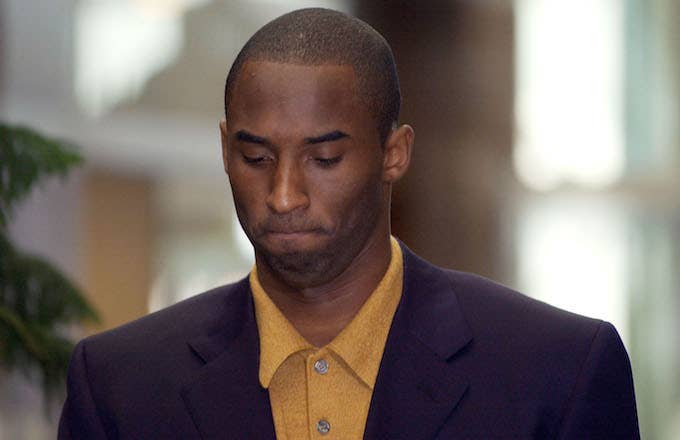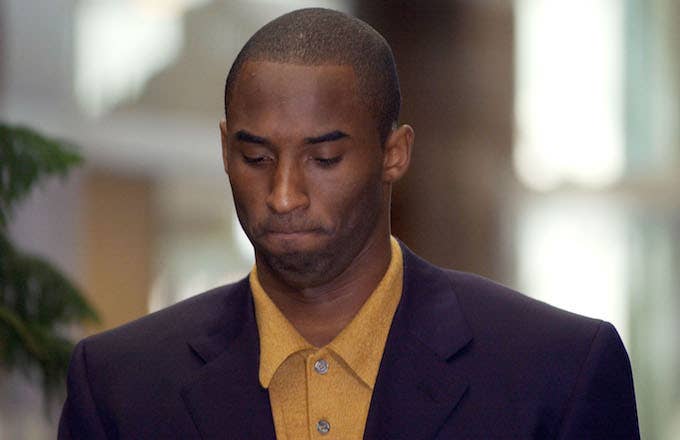
In 2003, a 19-year-old woman accused Kobe Bryant of raping her at the Lodge & Spa at Cordillera in Colorado, where he was recovering from offseason surgery. After her name was leaked, she opted not to testify in the criminal proceedings, which were dropped as a result. In a civil suit two years later, Bryant was forced as part of the sealed settlement to issue an apology of sorts, without fully admitting to the charges. Since both cases, Bryant has won two more titles and created a persona, the Black Mamba, that inoculated him from the fallout over the case, if his marketing power is any indication. Since his retirement in 2016, Bryant's never been more popular, with an Oscar to his name and a set of young adult novels due for release in 2019.
After Bryant was charged, Nike was the only company to stand by him during the rape trial, and the Mamba personality they created didn't shirk from the darker aspects of his personality. Mamba represented the dangerous side of Bryant, and it purportedly allowed him to be more honest with the public, since—in his mind—they had already demonized him. In a new Washington Post feature with Kent Rabb, Bryant expounds on that time in his life like he never has before. With the backdrop of the #MeToo movement hovering over it all, Bryant goes into detail about how the case affected him and led to his abrupt marketing reversal.
"I don’t know what would’ve happened had I not figured it out," he tells Rabb. "Because the whole process for me was trying to figure out how to cope with this. I wasn’t going to be passive and let this thing just swallow me up. You’ve got a responsibility: family, baby, organization, whole city, yourself — how do you figure out how to overcome this? Or just deal with it and not drown from this thing? And so it was this constant quest: to figure out how do you do that, how do you do that, how do you do that? So I was bound to figure something out because I was so obsessively concerned about it."
Later on in the piece, Bryant appears to get emotional about how the case allowed him to be more himself: If the people who buy his sneakers or root for the Lakers were going to stand by him, they would stand by the real Kobe. Implicit in his statement was that the watered-down version promoted earlier in his career wasn't the real Bryant.
"During the Colorado situation, I said: 'You know what? I’m just going to be me. I’m just going to be me.' Fuck it. If I don’t like a question from a reporter, I’m going to say it," he says. "If they ask me a question about this thing, I’m just going to tell them the truth."
In 2016, The Daily Beasttracked down the story Bryant's accuser told the Colorado police. We strongly encourage you to read her account, so you have a more well-rounded idea of what transpired that night in 2003. She had to cope with the fallout, too.

